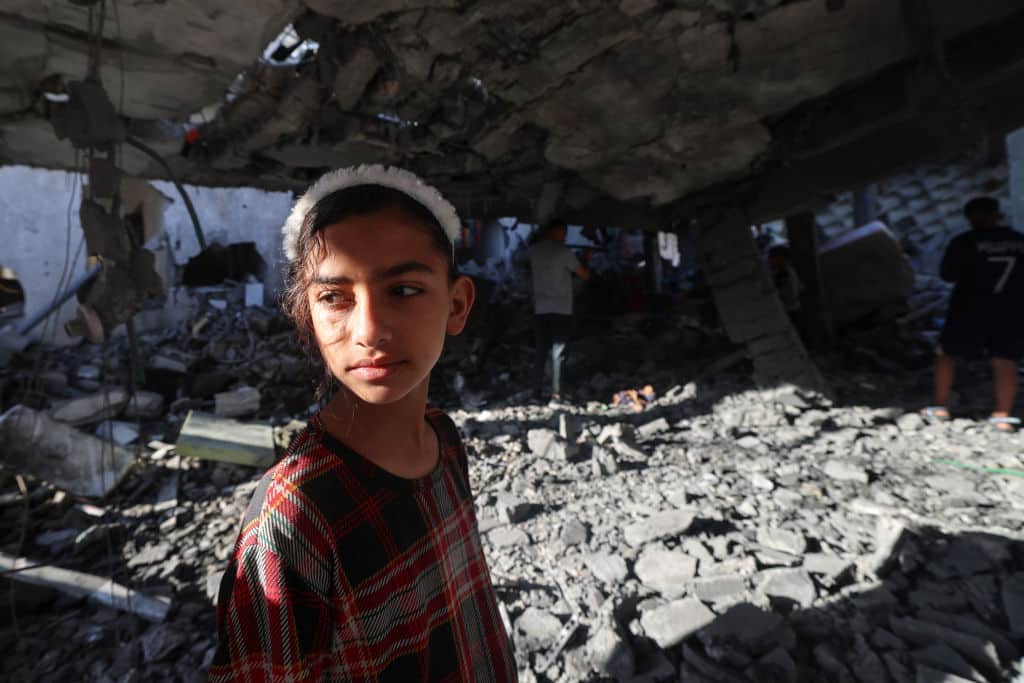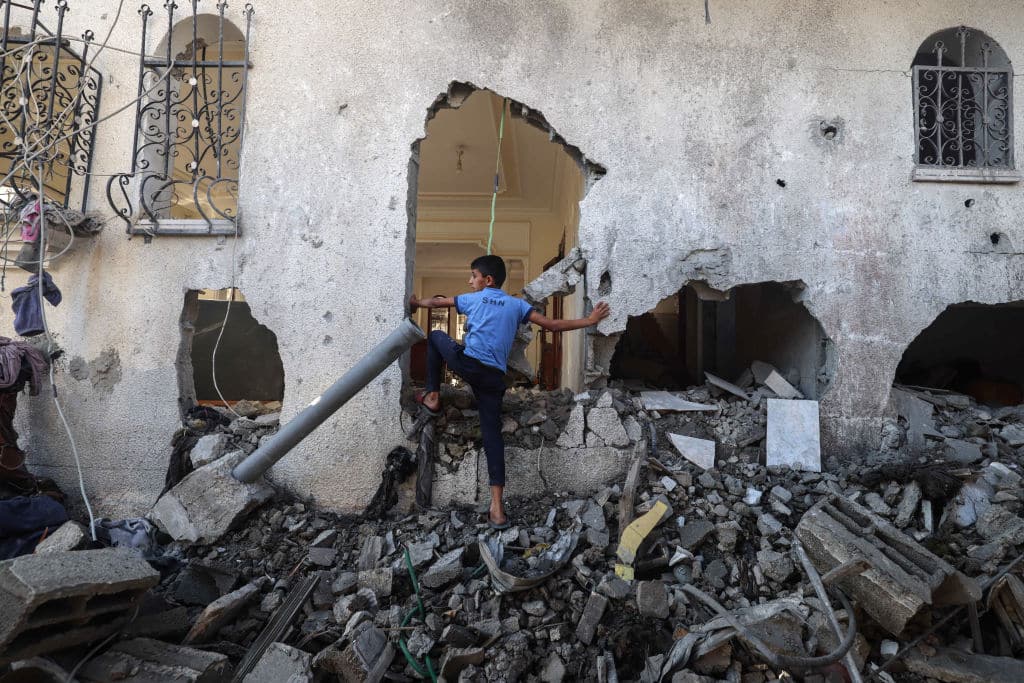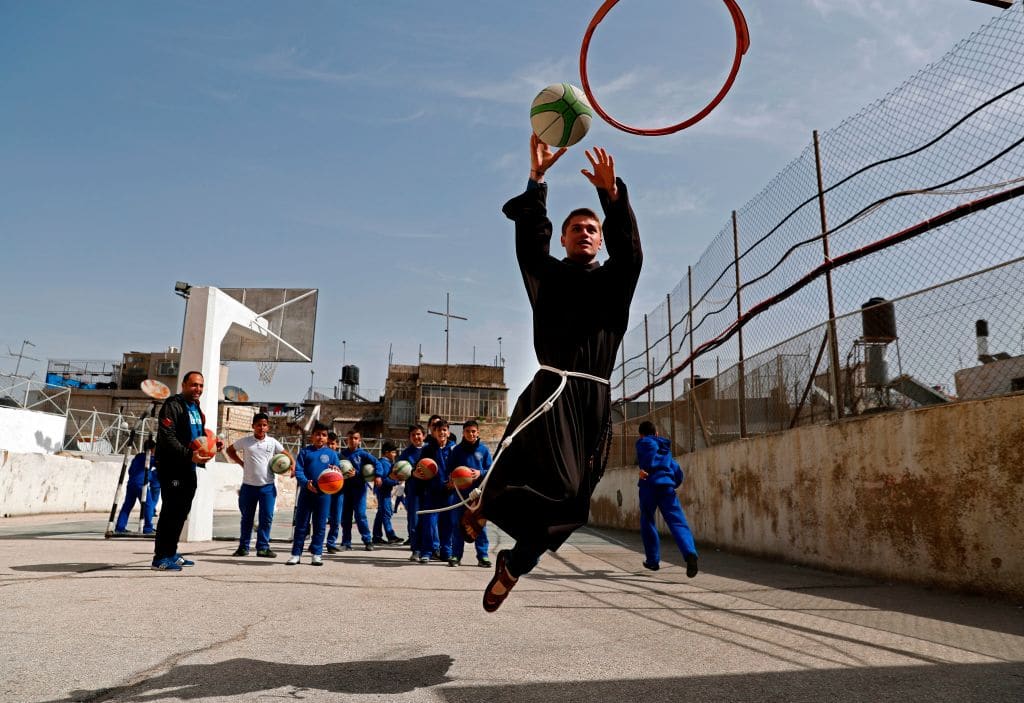War has become ‘a way of life’ in Holy Land
War in Gaza has become a “way of life,” says a Franciscan priest in the Holy Land. “The Holy Land has been at war for almost seven months,” said Franciscan Father Ibrahim Faltas, Vicar of the Franciscan Custody of the Holy Land. “It is a way of life, or rather an obligation to live the The post War has become ‘a way of life’ in Holy Land appeared first on Catholic Herald.

War in Gaza has become a “way of life,” says a Franciscan priest in the Holy Land.
“The Holy Land has been at war for almost seven months,” said Franciscan Father Ibrahim Faltas, Vicar of the Franciscan Custody of the Holy Land.
“It is a way of life, or rather an obligation to live the evil of war that no one can get used to,” he told Italian news service Agenzia Fides.
“For years, the international community has turned a deaf ear to the need and possibility of ending hostilities in this tormented Middle East,” he said.
He referred to the United Nations Security Council resolution approved on 25 March that called for an immediate cease-fire in Gaza, as well as the unconditional release of all hostages held by Hamas.
“The decisions taken were not implemented and their implementation was not checked,” the Franciscan said.
On 16 April, Israel sent tanks to parts of the northern Gaza Strip, while warplanes conducted strikes on Rafah in the south of the territory, killing and wounding several people, according two local officials.
The Israeli offensive in Gaza has killed over 33,000 Palestinians, according to local health officials, and driven a third of Gaza’s population to the brink of starvation.

It was launched in response to the 7 Oct. attack by Hamas on Israel, which killed around 1,200 people, alongside more than 200 being taken hostage.
“About two million people experience the suffering of lack of everything. These are people who will experience the famine, the lack of care, the lack of dignity in 2024,” Faltas said.
Over the weekend, Iran launched a massive barrage of over 300 drones and missiles at Israel in what is believed to be Iran’s first direct attack on the country.
Nearly all of the weapons were intercepted by Israel and its allies, including the United States.
However, a 7-year-old girl was severely injured, and a military base was slightly damaged by the weapons that made it through the defences.
Faltas said the attack caused fear and despair for the Holy Land, part of a seemingly never-ending tragedy.
“It was an attack that was unfortunately expected and once again brought the sounds and lights of violence to the Holy Land. Every people has the right to live in security, and in this constant game of violence and power, it is the most defenceless who suffer the tragic consequences of war,” the Franciscan told the Italian news service.
“On the night between Saturday and Sunday, who could have had the strength to hope? Fear and despair do not let you sleep, they cast their shadows over the future. Children, in particular, are frightened and do not understand the absurd and reckless game played by adults,” he said.
“I’m trying to understand the reasons of both sides. I don’t always succeed. I cannot justify the continued use of violence and hatred that destroys the lives of innocent people,” the priest added.

Faltas told Agenzia Fides the conflict in the Holy Land is expanding, it is taking on more and more destructive features, and the ways of war are being used with ever more advanced technology.
On 14 April, Pope Francis said he was following “in prayer and with concern, even pain,” the news about the Iranian attack of Israel.
“I make a heartfelt appeal to halt any action that might fuel a spiral of violence, with the risk of dragging the Middle East into an even greater military conflict,” the Pope said.
“No one should threaten the existence of others. May all the nations instead take the side of peace, and help Israelis and Palestinians live in two States, side by side, in safety. It is their deep and legitimate desire, and it is their right: Two neighbouring States,” he continued.
“Let there be a ceasefire in Gaza soon, and let us pursue the paths of negotiation, with determination. Let us help that population, plunged into a humanitarian catastrophe; let the hostages kidnapped months ago be released! So much suffering! Let us pray for peace. No more war, no more attacks, no more violence! Yes to dialogue and yes to peace!” Francis said.
Faltas said the Pope has taken every possible step to urge the parties to meet and build peace.
“Together with him, the children, the innocent and the defenceless ask for peace and call on the irresponsible adults to stop, because the violence of the war has already spread to several fronts,” the priest told Agenzia Fides.
“Stopping now means stopping every form of revenge, every destructive action that primarily affects those who are not to blame. Let us join Pope Francis’s call for an immediate ceasefire and set about defining and implementing the two-state solution,” Faltas said.
Pope Francis has found himself criticised for trying to navigate the competing claims from Israel and from Palestine during the war in Gaza, while also criticised for suggesting that a negotiated settlement to end the war in Ukraine should not be beyond consideration.
“Let us ask, let us plead, let us cry out in search of peace, without growing weary and without becoming accustomed to the evils of war,” Faltas concluded.
Photo: A Palestinian girl and other children explore a building destroyed by an Israeli bombardment the previous night in Rafah, Gaza, 17 April 2024. (Photo by MOHAMMED ABED/AFP via Getty Images.)
![]()
The post War has become ‘a way of life’ in Holy Land appeared first on Catholic Herald.














